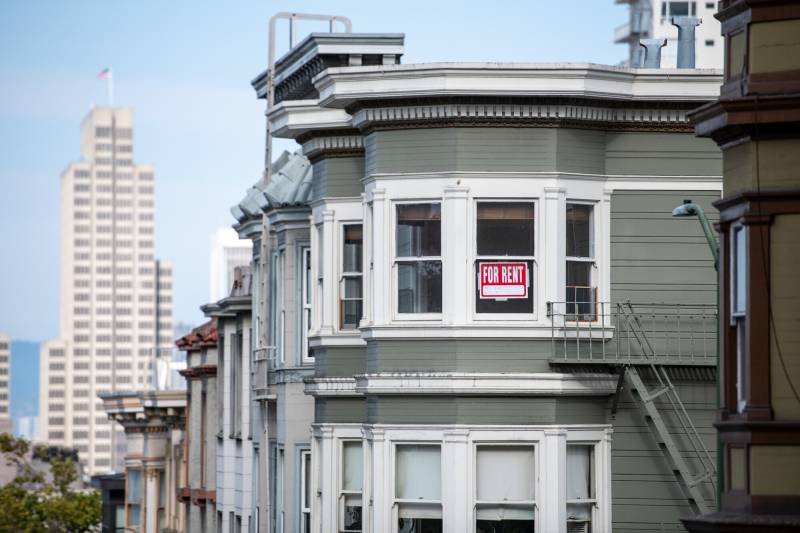Tens of thousands of units in San Francisco are estimated to be owned by companies that use RealPage, including Brookfield, Greystar, and AvalonBay, according to Lee Hepner, a San Francisco-based antitrust lawyer and senior legal counsel for the American Economic Liberties Project, who has been following the RealPage investigation and similar lawsuits closely.
“This price-fixing scheme is being facilitated by a third-party algorithm, and the advent of this software means that it can facilitate those schemes across very large markets,” Hepner said.
A recent report from progressive research and advocacy organization, Accountable.US, found that the six largest publicly traded apartment companies — all of which have been sued for their use of RealPage — made a combined $300 million in profits in the first quarter of the fiscal year, in many cases due to rent increases.
The San Francisco Apartment Association declined to comment before the legislation was presented on Tuesday at the Board of Supervisors.
Peskin’s proposal comes as President Joe Biden is considering rent caps on corporate landlords in a bid to slow rising rent prices and eviction rates nationwide. That plan, announced Tuesday, would require corporate landlords to cap rent increases on existing units at 5% — or risk missing out on federal tax breaks.
“A federal rent cap reflects what we’re seeing across the country: increasingly, cities, counties and states are turning to rent stabilization — recognizing its centrality to addressing the housing crisis and keeping people in their homes,” Tram Hoang, senior housing associate at the Oakland-based national research institute, PolicyLink, said in a statement. “Communities are grappling with record-high rent gouging and urgently need more elected leaders to step up and make it right.”
Nearly half of renters nationwide in 2022 spent more than a third of their income on rent, according to data from the Harvard Joint Center for Housing Studies. However, the lack of affordable rental units has simultaneously worsened across the country. The shortage of affordable and available homes for renters with extremely low incomes increased from approximately 6.8 million units needed in 2019 to 7.3 million in 2021, data from the nonprofit research organization Urban Institute show. Many households feel the pinch caused by a combination of inflation and the end of much pandemic-era rental relief.
East Oakland renter Merika Goolsby has experienced the destabilizing effects of major rent hikes. When her two-year lease expired, she was given the choice of signing a one-year lease with an increase of $350 per month or paying month-to-month for an increase of $1,200.
“I couldn’t work any more hours. I was panicking. I called the office and said there’s no way I can afford an additional $350,” said Goolsby, who is a member of the Alliance of Californians for Community Empowerment Action, a statewide community organization that supports Peskin’s proposal. “I was told, ‘Maybe this isn’t the place for you; you should downsize.’ They weren’t willing to work with me at all.”
Biden’s plan is already being met with pushback from groups including the National Housing Conference — a coalition representing a broad range of interest groups including realtors, land trusts and banks — who argue that mandatory rent caps could limit capital needed to build new units, discourage investment in multifamily rental housing, and hinder the market.
“Our nation’s housing supply has not kept pace with the needs of our growing population,” said David M. Dworkin, president and CEO of the National Housing Conference. “The only way to address our affordable housing shortage is by building more affordable housing.”
He added: “Rent caps don’t work and will have a chilling effect on housing supply.”
Biden’s plan still requires congressional approval, which will almost certainly be a battle getting through the Republican-controlled House of Representatives.
Meanwhile, experts say it will take a combination of approaches to dig out of the housing affordability crisis.
In San Francisco, Hepner believes Peskin’s legislation aiming to control rents complements efforts to add more housing units across the city.
“Housing markets are very localized, and that’s why we think there is a significant role for not just state but even municipal lawmakers to take action,” Hepner said. “Hopefully, what San Francisco is doing joins momentum that’s been building for the better part of a year to tell the housing market across the country that this type of price-fixing scheme is not going to be tolerated.”

